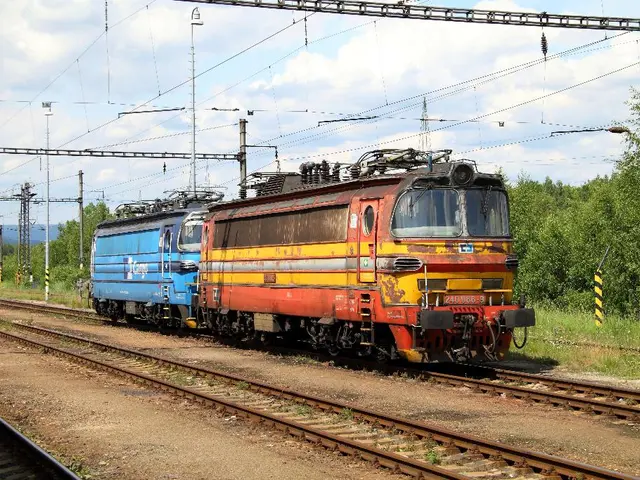A Dip in Wind Turbine Permits in the Northern Regions: What's Happening in Schleswig-Holstein?
Decline in Approval of Wind Energy Projects in the Northern Region - Diminished approvals for wind energy generators in northern regions
Let's delve into the nitty-gritty of the recent drop in wind turbine permits in the northernmost federal state, Schleswig-Holstein. Last year, the state issued 204 new permits, a decrease from the 241 permits granted the previous year, as revealed by the Schleswig-Holstein Ministry of the Environment at the Wind Industry Day in Husum. The total capacity of these installations clocked in at 1.1 gigawatts.
Interestingly, the state's permit process is among the swiftest in Germany, typically taking 18 months compared to the national average of 23 months. Energy Transition State Secretary Joschka Knuth (Greens) attributed this accelerated expansion of wind power in Schleswig-Holstein to the expedited permitting process. In 2024, the state generated a whopping 27.3 terawatt hours of green electricity.
Looking ahead, the Ministry of the Environment is currently reviewing an additional 348 wind turbines with a combined capacity of around 2 gigawatts. Additionally, 489 installations have been approved and are either under construction or awaiting connection to the grid. Schleswig-Holstein aims to achieve its goal of generating 45 terawatt hours of electricity from land by 2030.
However, the industry faces challenges such as overburdened permit authorities, red tape, and insufficient grid capacities in many regions, including Schleswig-Holstein. Knuth emphasized the necessity for a reliable framework for the industry to continue investing in the energy transition, especially under the new federal government.
In fact, wind energy is considered the backbone of Germany's power supply, according to the president of the Federal Association of Wind Energy, Bärbel Heidebroek. The industry is determined to work alongside the new government to sustain this high rate of expansion to ensure a cost-effective, independent energy supply.
The broader context suggests that the decrease in permits may be linked to challenges such as delays in permitting and the urgency of grid modernization, as Germany aims to meet ambitious climate targets via increased renewable energy production. Repowering projects, grid modernization efforts, and support for political and environmental goals are expected to play a vital role in driving future expansion.
- wind turbine
- permit
- Schleswig-Holstein
- BMU
- Husum
- gigawatt
- federal government
- energy transition
- electricity
Additional Insights:
- General issues affecting wind energy development in Germany include delays in permitting and grid modernization needs.
- Ongoing efforts to expand wind energy in Germany include repowering projects and grid modernization initiatives.
- The German government is under pressure to accelerate grid modernization and reduce permitting times for renewable projects to improve the outlook for wind energy expansion.
- To address the declining number of wind turbine permits in Schleswig-Holstein, it may be essential to expedite thegrid modernization process and reduce permitting delays.
- The German government can contribute to the continuing expansion of wind energy by providing a reliable framework that encouragesindustry investment in the energy transition, especially under the new administration.
- Capitalizing on ongoing efforts like repowering projects and grid modernization can provide a platform for the sustainability of wind energy development, ensuring a cost-effective, independent energy supply and supporting environmental-science objectives.








